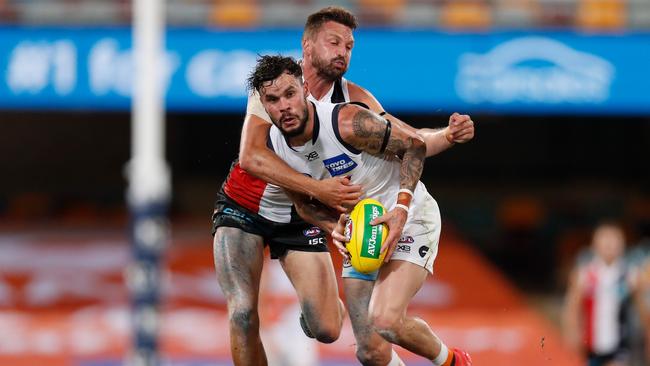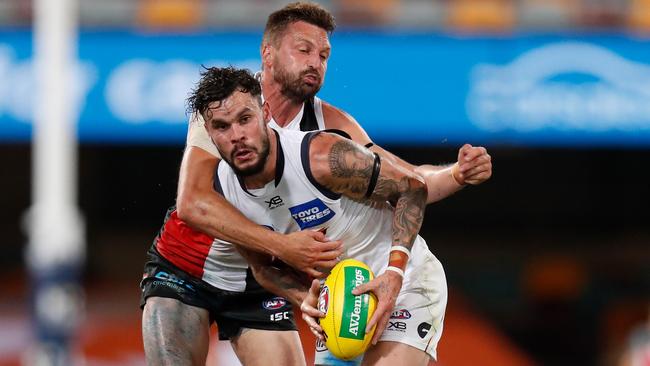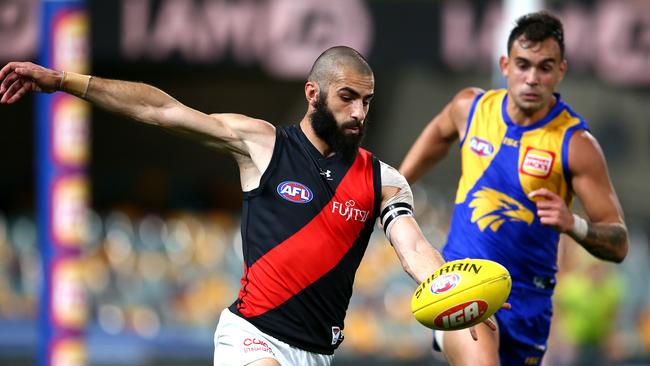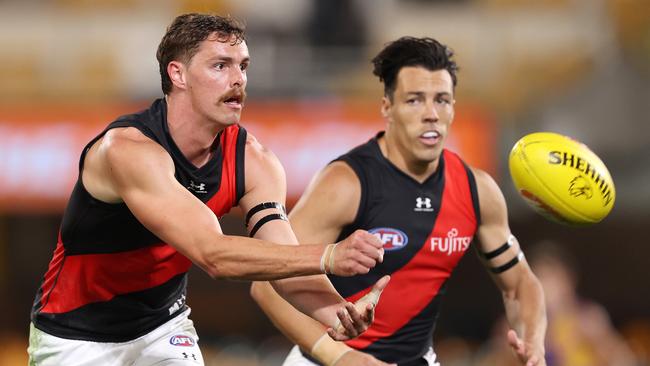AFL 2020: How clubs are gaming the free agent system
Carlton has copped it for paying big dollars for GWS defender Zac Williams, but there is more to free agency contracts than meets the eye, writes JON RALPH.

AFL
Don't miss out on the headlines from AFL. Followed categories will be added to My News.
On every metric but the one that actually matters, Zac Williams is an overpriced recruit at the Carlton Football Club.
He has never been an All Australian, never finished top-three in the best and fairest, and has never put together a starring season as the kind of onballer Carlton wants him to be.
And yet what all of the critics of a salary that will pay him $4.8 million plus incentives over six years ignore is the way he has arrived at Carlton.
It wasn’t that the Blues were sucked into paying him $800,000 and more a season, the salary was a deliberate ploy to ensure a first-round compensation pick so GWS would not match that bid.
For all of the froth and bubble coming out of GWS, their own offer to him was in the ballpark of $700,000 per season.
Kayo is your ticket to the best sport streaming Live & On-Demand. New to Kayo? Get your 14-day free trial & start streaming instantly >

So let’s accept the argument that one of footy’s best line-breaking, attacking half backs with starring cameos in the midfield is at least worth that sum.
What Carlton knows is that paying an extra $100,000 a season is exactly the kind of premium clubs are prepared to pay free agents because they don’t require a draft pick in return.
Next year’s salary cap is $13.273 million plus a marketing allowance of $1.194 million.
So in effect by paying an extra $100,000 in a $14.4 million cap, Carlton has paid one extra dollar in every 140 it possesses in that cap next year to secure Williams without the loss of a first-round pick.
Hand him a $700,000 salary over four years and GWS would match the end-of-first-round compensation pick then stick its hand out for the club’s No.8 draft pick.
As it happens the Blues will get a deal done on Essendon’s Adam Saad using that exact draft capital.

So if you are one of those prepared to picket-line Ikon Park on the size Williams’ deal, you also have to believe the club should only have gone after one of Williams and Saad.
Instead it’s effectively a two-for-one deal, handing over pick eight and $1.55 million for the foreseeable future for two of footy’s most attacking players.
Brisbane was well aware on recent form that Joe Daniher wasn’t worth anywhere near $2.5 million of guaranteed money.
Yet Brisbane’s work had only just started when he declared he was keen to move north.
They went to work forensically calculating what it would take for Essendon to secure a first-round compensation so they could protect their two first-round picks.

They worked out what it would take for him to be in the top 5 per cent of salaries, they considered, which front-ended and back-ended contracts at rival clubs would influence that compensation selection.
In short, they did everything in their power to “game” the compensation model and then added some extra salary on top, so desperate were they to avoid a trade with Essendon.
As a result, Brisbane not only has Daniher on a three-year deal that reduces their risk if he breaks down, they retain their No.18 and 19 picks.
MORE AFL NEWS
As they told the Herald Sun on Friday night, they are open to trading those picks, packaging them up for a top-10 selection or even moving them into next year’s draft.
If you want to attack Carlton about over-priced players, hit them up on Mitch McGovern, who is not only on a megabucks deal but got to the Blues after they gave up pick 26, 28 and their rights to Shane McAdam.
But Carlton has banked cap space for this very day, and used it prudently at exactly the time when it was close enough to the finals window to have maximum effect.
Originally published as AFL 2020: How clubs are gaming the free agent system
